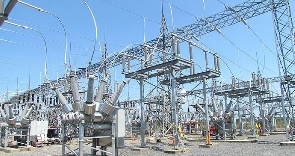 The whole of Ghana suffered went without electricity for a little over two hours on Sunday, 7 March
The whole of Ghana suffered went without electricity for a little over two hours on Sunday, 7 March
The Institute for Energy Security (IES) has called on government to address the cash flow challenges of the Ghana Grid Company (GRIDCo) and the Electricity Company of Ghana (ECG) to enable them operate effectively across the country.
This follows the disruption of power supply across the country on Sunday, 7 March and Monday, 8 March 2021.
According to the IES, government’s ability to address the cash flow challenges of the power-producing company will curb the persistent system failure which continues to undermine the service delivery of the power producer.
In a statement issued by the IES and signed by its Research Analyst, Fritz Moses on Monday, 8 March 2021, the Institute noted with concern the “increasing rate at which Ghana’s transmission grid collapses, resulting in several interruptions in power supply to homes, businesses and other places. More worrying is how the interruptions have heightened since the beginning of this year, and the kind of explanations put forward.”
The IES further noted that: “It will be recalled that the power supply cuts on Wednesday, 27 February 2021 and Sunday, 7 March 2021 were attributed to Gas supply challenges from the offshore fields and the West Africa Gas Pipeline Company (WAGPCo) respectively. We are however yet to understand the full extent of factors that accounted for the total blackout experienced on Sunday, 7 March 2021.
“Aside these major power supply cuts, there have been several reports of power outages in parts of the country that have until date not been explained.”
The IES continued that although GRIDCo gave explanations for the blackout experienced across the country on Sunday, 7 March, it failed “to put across the kind of technical fault that occured, leading to the system collapse.”
It further continued that:“GRIDCo must explain to the taxpayer and consumer the cause of the power trip at the Prestea to Obuasi transmission line that cascaded into other trips in the system.”
The Institute also expressed concerns over “incidents of power plant tripping from transmission system disturbances, because the trip can lead to equipment failure due to the sudden load rejection. Additionally, the thermal shocks to the systems because of load rejection has the effect of reducing the life span of generating units.”
It alsi sympathised “with the operator, knowing well that cash flow challenges due to delayed payments of receivables, is having a toll on the operations of the company.”
It added that: “Until the financial, technical, and commercial issues of the power companies are dealt with, the Ghanaian cannot be assured of consistent and reliable power supply, even though current plant available capacity exceeds current system peak demand.”
The whole of Ghana suffered went without electricity for a little over two hours on Sunday, 7 March 2021.
State power transmitter Ghana Grid Company Limited (GRIDCo) blamed the situation on a system failure.
In a short statement, GRIDCo said the failure happened at about 2: 10 pm.
It said the problem led to the “interruption in power supply in all parts of the country”.